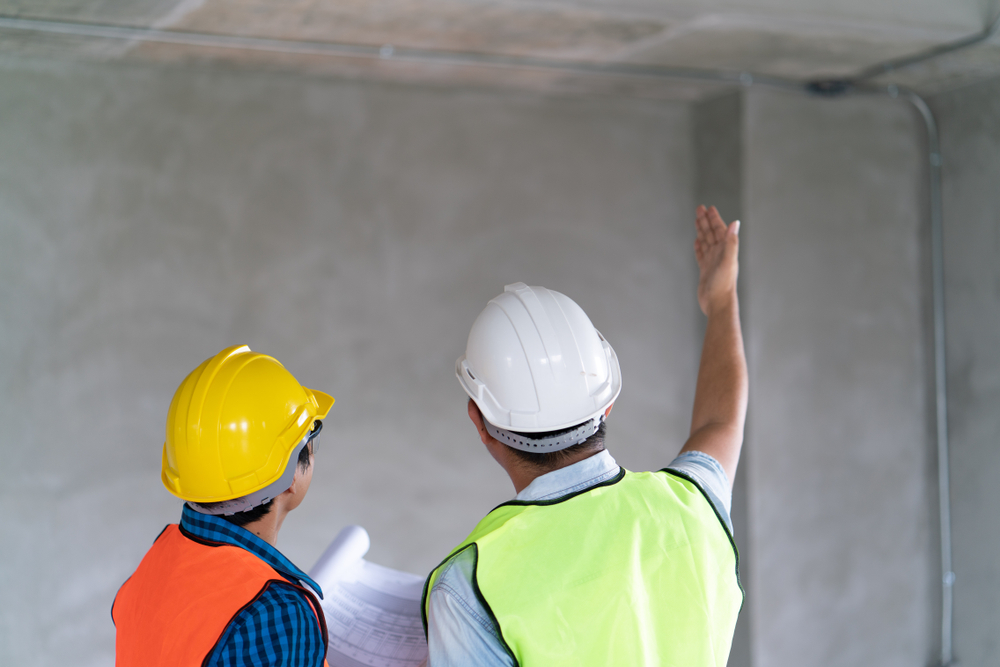Defect Claims and Delay Claims: What Is the Difference?

A construction claim or dispute can often stall a project for months or even years as the parties argue over responsibility for a mishap, defect, or delay. The time, energy, and money spent wrangling over the claim can always be put to better use, and often, the dispute could have been avoided entirely with a bit of foresight on the part of the property owner and contractor.
Construction Defect Claims
Construction contracts typically have a provision that a subcontractor placing work over existing work has an obligation to inspect that prior work. By proceeding, the subcontractor warrants that the prior work is sound enough and free from defects. In other words, each succeeding subcontractor working on a project accepts that what has come before is sufficient to serve as a substrate or basis upon which work can be placed.
This contract provision will make it difficult for any subcontractor to argue the construction was defective because by continuing to work, each subcontractor accepted the prior construction as sufficient. If a contractor has made a mistake, it is important to give timely notice in order to have a chance to correct the work. Also, a notice may be necessary before any construction defect claim is filed.
If a contractor or subcontractor notices a construction or design defect, the best practice is to give the owner or general contractor notice of the problem at once before work proceeds any further. Not only will immediate notice allow the party responsible for the defect an opportunity to correct the problem, but it will also save time and money in the long run. As construction proceeds, any defect earlier in the process will become progressively more expensive and laborious to correct.
No contractor should proceed to work over a defect that will affect their own work. Timely intervention is critical.
Construction Delay Claims
A construction delay claim is usually an unavoidable feature of construction work. Precise schedules usually break down if for no other reason than the weather refuses to cooperate. Nevertheless, while delay claims cannot be avoided, they can be anticipated.
If you face a construction delay, you want to notify all other parties involved. Timely notice to the owner may be required by the contract, but other contractors and subcontractors should be notified as well, as the delay in one schedule may affect the work schedules of others.
Any delay notice should describe the reason for the delay, the work affected, and the amounts of money and time involved, as far as these can be estimated. Supporting documents and evidence for the notice should also be included.
A carefully drafted notice is important as it will allow not only you but the other parties to the contract to determine their manpower and equipment budgets and allocations. These estimates may mean the difference between making a profit and making a loss for many subcontractors.
Also, in the event of a delay, you and other contractors should carefully consider the provisions of the contract’s acceleration of work clause. Extra resources and overtime may be needed to catch up, even in the event of a delay claim. This may give rise to an acceleration of work claims.
How a Construction Lawyer Chicago Can Help
Certain steps can be taken at the outset to avoid any kind of construction claim or dispute, whether for the delay, defective work, or any other reason. A careful review of the construction documents at the beginning of the project can go far towards avoiding disputes later.
- Know the scope of work. A well-drafted scope of work will set forth the expectations for each contractor involved in the project. This document will also contain specifications and assumptions made for the cost of work.
- Understand the other contract documents. Understand the list of plans, specifications, assumptions, reports, agreements, and any addenda comprising the contract documents. Any misunderstanding relied upon in these documents can be addressed at the outset, and this reduces the risk of delay or defect later.
- Understand the priority within the list of contract documents. If the contract documents contain contradictory requirements, understanding which document takes precedence is key.
- Understand the terms of the contract itself. The contract’s time requirements, force majeure requirements, and other delivery provisions set forth responsibilities for both contractors and owners.
In the end, a competent construction lawyer in Chicago can assist you with the preparation of any documents needed for delay or defect claims if an agreement cannot be reached with the other parties to the contract. At the Grzymala Law Offices, P.C., we have the experience as a Chicago construction defect attorney and construction delay attorney necessary to help you with construction contract claims, whether for defect, delay, or any other cause. Call us today for a consultation.
